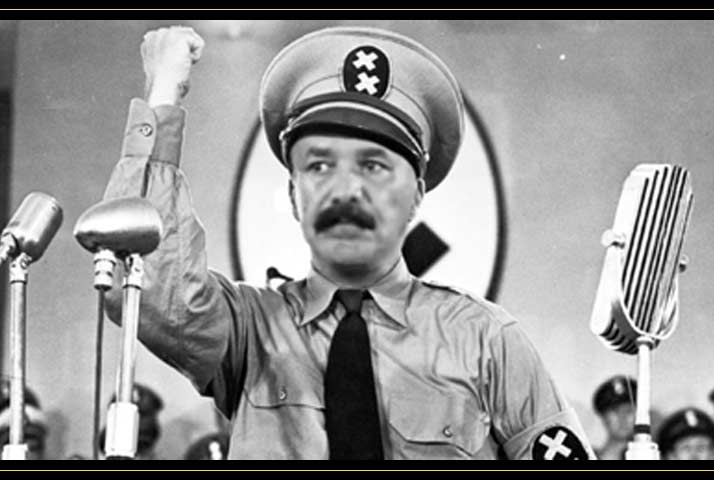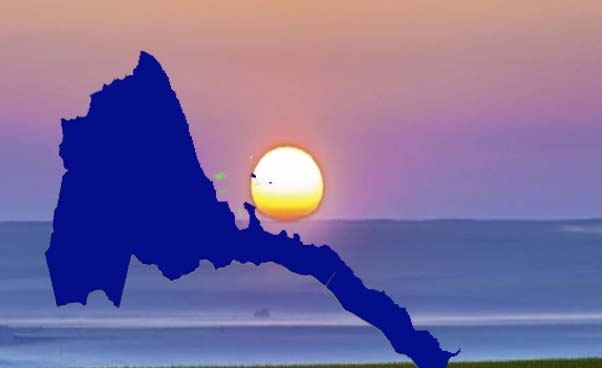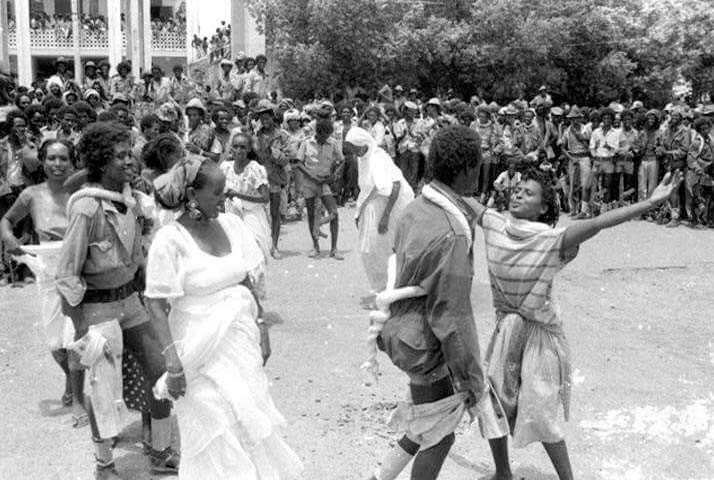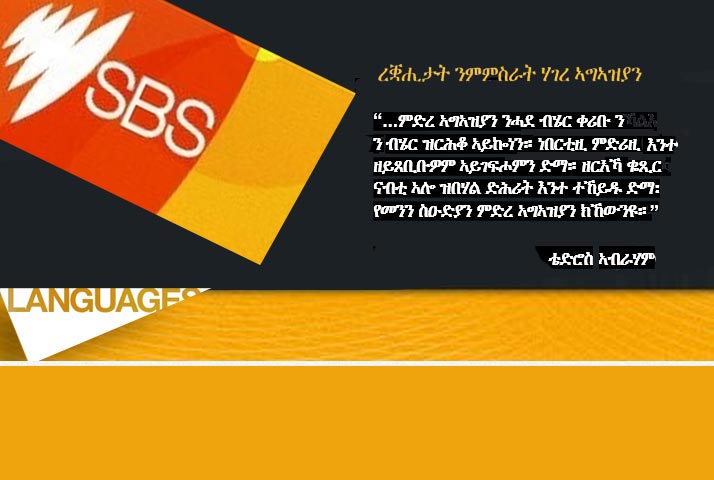Isaias and His Tactics for a Quarter of a Century

A quarter of a century after independence on May 24, 1991, Eritrea still has some growing agonies to overcome. The country that was considered hope and model for the ravaged Africa (Cameron McWhirter, Chicago tribune, may 16, 1993), has now become one of the largest refugee producing countries in the world. Twenty-five years after the joyful celebrations and endless promise of freedom and justice, Human Rights Watch reported that tens of thousands of prisoners of conscience–political and religious–are held in arbitrary detention centers. Currently, Eritrea under a single political party, the People’s Front for democracy and Justice (PFDJ), has no freedom of expression, no independent media, and no civil society. Under the grueling and well rooted dictatorial government of Issais Afewerki, Eritrea is ravaged by serious human right abuses and poverty (Human rights watch Report 2015: Eritrea). Therefore, it is apparent to ask, how did the once promising African country turn into one with no constitution, freedom of press, freedom of religion, and no structured justice system? And what does the future hold for the small, yet strategic country, and its people?
For more than a century, Eritreans have been paying dearly for the ideals of liberation, freedom, democracy, and justice. Initially under Eritrean liberation front, followed by Eritrean people’s liberation front, the people have led a thirty-year war for independence from Ethiopia. They won independence and hoped to build a prosperous country with a constitution that safeguarded freedom and justice. Ever since Eritrea marked its formal independence on May 24, 1991, it has been rule by the dictatorial government of Isaias, the former freedom fighter who has been in power since 1973, together with other leaders who split from the Eritrean Liberation Front (ELF) to form the Eritrean People Liberation Front (EPLF). After independence, EPLF changed its name to PFDJ, which is the sole ruling party.
The Eritrean revolution had many brave, educated and capable leaders within its ranks but still, Isaias managed to stay in power facing little or no resistance; it is still a mystery how Isaias managed to stay as a top commander of the EPLF throughout the struggle era. For a revolutionary organization that was praised for its effective structure, it is unexplainable why the freedom fighters allowed him to hold power until Independence Day; twenty-five years later, he is the first and the only president the country has seen. In his recent interview with Al Jazeera, Isaias said that there will not be any election in Eritrea any time soon; knowing how Isaias managed to stay in power for such a long time, would greatly help in understanding the history, the present and the future of the country.
This article is mainly based on my personal observations on the post-independence era and will emphasize the tactics Isaias used to mislead the people to stay in power. In addition, I will address the main consequences of his dictatorial regime and the impact it could have for the future the country.
If we assess the behavior of the government of Isaias after independence, we can clearly track his strategies and systematic movements, we can understand how he held power for a quarter a century. Out of the many strategic steps he took, I will focus on the following:
- Isaias expelled international aid agencies and stopped Western presence in line with his draconian policy of self-reliance with an aim to control the country. Western involvement in the country could have exposed the regime’s human right abuses and injustice, hence lead it would have led to a strong condemnation and opposition that could hinder him from implementing his unlawful governance.
- He cultivated a “man of the people” image for himself by his occasional evening strolls in the streets of Asmara. That action brought him a lot admiration—it was designed to portray a strong support from the people.
- The regime brainwashed most the people into believing that Eritrea is by far better than the rest of Africa. The state-owned media broadcasted negative images of other countries focusing on disruption, violence, protest, war, etc., while the state media tainted Western countries as a threat to the Eritrean national security and at same time made his supporters believe that Eritrea is under constant threat from the West, mainly United State and the United Kingdom.
- Isaias built a strong police and security system under the leadership of his trusted military officers who made their presence felt in the large cities during the passive period of 1991 to 1998. The security forces are equipped with orders to use force and severe punishments to instill fear among the people—it was a calculated move and a warning of the consequence for any protest.
- Isaias systematically hindered the implementation of the constitution which stated, “the principles on which the state is based and by which it shall be guided, and determines the organization and operation of government”. It is a source of government legitimacy and the basis for the protection of the rights, freedom, and justice. The constitution was ratified in 1997, but it was not implemented. Also, despite the ratification of the election law in 2002, election was not held. The constitution allows the president to hold office no more than two terms of five years each. Evidently, the constitution was the biggest threat to his long-term plan to stay in power indefinitely. Hence, it didn’t take long before a war with Ethiopia started. Now, 17 years later, Isaias and his government uses the “no war no peace” situation to cling to the power after he imprisoned top ministers and military leaders who demanded the implementation of the constitution after the border dispute went to arbitration.
- Isaias often reshuffles ministers and military commanders to create instability and insecurity. Popular ministers and leaders among the public, whom he considers a threat to his power are assigned to less significant positions.
- Isaias’ regime intentionally controls the speed and Internet and its access to limit communications to and from the country; his repressive government explicitly censors online and telephone communications. Internet is not allowed in private homes even if one can afford the prices, while the Internet cafés are monitored by security agents. Of course, Isaias is threatened by free communication doesn’t allow investment in Internet infrastructure to limit the opportunity for greater social awareness.
- The dictatorial regime also considers higher education as threat to the power structure. In 2002, the regime closed the only internationally recognized University in the country. Currently, there are only small and incompetent colleges that are administered by military officers.
The above mentioned systematic of rule, among others, has created a situation that allows Isaias to strengthen his dictatorial regime. Over the last 25 years he dominated and held every powerful position to effectuate his long-term plans. Most dictatorial regimes, such as the late Ghadaffi of Libya, Mugabe of Zimbabwe and Omar al Bashir of Sudan use the above-mentioned schemes. Just like other dictators, Isaias is determined to stay in power at any cost, without any vision (Fetsum Abraham, Awate, January 25, 2013). Under Isaias’ authoritarian regime, Eritrea has become:
- The highest refugee producing country in the world. UNHCR Refugee Agency reported that asylum-seekers in Europe during the fiscal year of 2014 has nearly tripled. The number of Eritrean refugees in Ethiopia and Sudan has also increased sharply. The report claimed there is an increasing number of unaccompanied children among the refugees.
- In April, 2016, Global Finance Magazine placed Eritrea the eightieth poorest country in the world with an estimated income per-capita (PPP) in 2015 of just over US $ 1,200. In September, 2012 the World Bank estimated that Eritrea was the sixth-poorest country in the world with poverty rate of 69%. In December 2014, International Monetary Fund (IMF) estimated the per-capita GDP adjusted for purchasing power parity between 2013 and 2018 will only grow by around 1.7%. By 2018, that will make Eritrea the second-poorest country in the word.
- Eritrea has one of the most repressive media environments in the world (Freedom of press 2015). According to the Committee to Protect Journalists (CPJ), as of December 1, 2014, there were 23 Journalists imprisoned in Eritrea. Reports Without Borders (RSF) placed Eritrea the last in the World Press Freedom Index for the past eight years.
- Eritrea is a giant prison with unimaginably atrocious conditions. Amnesty International reported in 2013, that Eritrea’s regime has jailed at least 10,000 political prisoners. The number includes Journalists, critics of the government, people who practiced an unregistered religion, and those who tried to flee the country.
Under Isaias’ regime, Eritrea is being subjected to a continual, systematic violations of human rights and fundamental freedoms. In addition to the above abuses, the most common practices include forced labor, open-ended military conscription, restriction on freedom of expression and movement, repression of religious freedoms, torture and other degrading treatment in detention centers, arbitrary arrest, etc. The situation in Eritrea is going from bad to worst; with the current wage structure, even a university graduate can barely survive for 10 days. The cost of living has sky rocketed and people are heavily relying on food rations and money transferred from relatives in the Diaspora.
Eritrea has been branded as a failed state by many political observers and it requires a strong movement to provide an alternative means to solving its major problem, which is primarily the Isaias regime. Now, the solution seems to be finding a way to overthrow the Eritrean dictatorial regime and start a smooth transition towards a constitutional governance. Currently, there are numerous political organizations and civil associations working to mobilize the society to strongly resist and oppose the regime. However, it is undeniable that all the organizations, regardless their difference, need to work together to achieve the common goals to be able to defeat the PFDJ. Over the years, most of the opposition forces spent a great deal of time criticizing each other on insignificant issues. Now, more than any time before, it is vital for the opposition groups to lay aside their difference and focus on the main enemy of the people. Eritreans need to come together to stop further pain of the people—it is time to stop counting differences and start to save the people and the country. Every initiative against the PFDJ, regardless of its origin, should be supported, not opposed. Organizations should be engaged in constructive dialogue on how to effectively and collaboratively use their resources to topple the Isaias Afwerki regime.
Our people, especially those residing in Eritrea, are facing a great risk, and the stakes are high. Citizen should take the issue seriously and immediately come to a resolution to end Eritrea’s plight. The solution is in the people’s hand.




Awate Forum